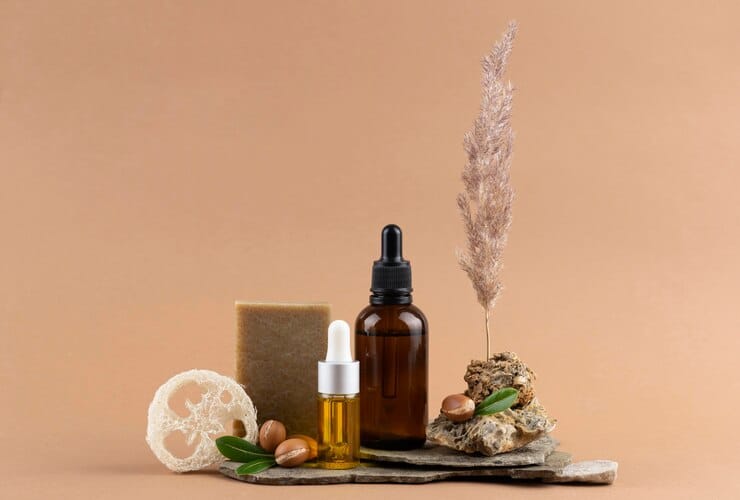Introduction
The immune system plays a vital role in protecting the body from infections and diseases. While conventional medicine offers various treatments to boost immunity, many individuals are turning to alternative medicine to enhance their immune response naturally. This article explores various alternative medicine practices and remedies that can support immune health, providing insights into how to strengthen your body naturally.
Understanding the Immune System
The immune system is a complex network of cells, tissues, and organs that work together to defend the body against pathogens, including bacteria, viruses, fungi, and parasites. It consists of two main components:
- Innate Immunity: This is the body’s first line of defense, consisting of physical barriers (skin, mucous membranes) and immune cells (phagocytes, natural killer cells) that respond quickly to infections.
- Adaptive Immunity: This involves a more specialized response, where the body develops antibodies specific to particular pathogens after exposure. This memory allows for a quicker and more effective response to future infections.
Factors Affecting Immune Function
Several factors can impact immune function, including:
- Nutrition: A balanced diet rich in vitamins and minerals is crucial for immune health.
- Stress: Chronic stress can weaken the immune response.
- Sleep: Quality sleep is essential for immune function.
- Exercise: Regular physical activity can enhance immunity.
- Age: The immune system naturally declines with age, making older adults more susceptible to infections.
The Role of Alternative Medicine in Immune Support

Alternative medicine encompasses a variety of healing practices and therapies that aim to promote health and well-being. These approaches can complement conventional medical treatments and offer natural ways to support the immune system. Here are several alternative medicine modalities that can help boost immunity:
1. Herbal Medicine
Herbs have been used for centuries to promote health and strengthen the immune system. Some notable immune-supporting herbs include:
Echinacea
Echinacea is a popular herb known for its immune-boosting properties. It is believed to stimulate the production of white blood cells, which are crucial for fighting infections. Echinacea may reduce the duration and severity of colds and flu.
Elderberry
Elderberry is rich in antioxidants and has antiviral properties. Research suggests that elderberry may help reduce the severity and duration of respiratory infections, making it a valuable ally for immune support.
Astragalus
Astragalus is a traditional Chinese herb known for its immune-enhancing effects. It may help increase the body’s production of immune cells and improve overall immune function.
Garlic
Garlic has been celebrated for its medicinal properties for centuries. It contains allicin, a compound that has antimicrobial and immune-boosting effects. Regular consumption of garlic may help prevent colds and infections.
Turmeric
Turmeric contains curcumin, a compound with anti-inflammatory and antioxidant properties. Curcumin may enhance immune function and help reduce the risk of chronic diseases.
2. Nutritional Supplements
Nutritional supplements can provide essential vitamins and minerals that support immune health. Some key supplements include:
Vitamin C
Vitamin C is a powerful antioxidant that plays a crucial role in immune function. It helps stimulate the production of white blood cells and can enhance the body’s ability to fight infections.
Vitamin D
Vitamin D is essential for immune health, as it helps modulate the immune response. Many individuals have insufficient levels of vitamin D, especially in areas with limited sunlight. Supplementing with vitamin D can help strengthen immunity.
Zinc
Zinc is vital for immune cell function and helps the body respond to infections. Zinc deficiency can lead to weakened immunity, making supplementation important for those at risk.
Probiotics
Probiotics are beneficial bacteria that support gut health, which is closely linked to immune function. A healthy gut microbiome can enhance the body’s ability to fight infections.
Omega-3 Fatty Acids
Omega-3 fatty acids, found in fish oil and flaxseeds, have anti-inflammatory properties that can support immune function. They may help modulate the immune response and reduce inflammation in the body.
3. Mind-Body Practices
Mind-body practices focus on the connection between mental and physical health, promoting relaxation and stress reduction, which can support the immune system.
Meditation
Meditation has been shown to reduce stress and promote relaxation. Regular practice can lower cortisol levels, which, when elevated, can weaken the immune system. Mindfulness meditation, in particular, can enhance immune function.
Yoga
Yoga combines physical postures, breathing exercises, and meditation to promote overall well-being. Studies suggest that yoga can enhance immune response, reduce stress, and improve quality of life.
Tai Chi
Tai Chi is a gentle form of martial arts that incorporates slow, flowing movements and deep breathing. Research has indicated that Tai Chi can improve immune function and reduce stress, making it a valuable practice for enhancing immunity.
Breathing Exercises
Deep breathing exercises can activate the relaxation response in the body, reducing stress and promoting a sense of calm. This practice may enhance immune function by lowering stress hormones.
4. Lifestyle Modifications
In addition to herbal remedies and mind-body practices, certain lifestyle modifications can significantly impact immune health.
Balanced Diet
A diet rich in fruits, vegetables, whole grains, lean proteins, and healthy fats provides essential nutrients for immune support. Aim for a colorful plate, as different colors often represent different nutrients and antioxidants.
Regular Exercise
Engaging in regular physical activity can boost immunity by improving circulation and reducing stress. Aim for at least 150 minutes of moderate exercise per week, such as walking, cycling, or swimming.
Adequate Sleep
Quality sleep is vital for immune health. Aim for 7-9 hours of restful sleep each night to support immune function and overall well-being.
Hydration
Staying well-hydrated is essential for maintaining optimal bodily functions, including the immune system. Aim to drink plenty of water throughout the day.
Stress Management
Chronic stress can weaken the immune response, so finding effective stress management techniques is crucial. Explore activities such as yoga, meditation, and spending time in nature to reduce stress levels.
5. Homeopathy

Homeopathy is a system of alternative medicine based on the principle of “like cures like.” It involves using highly diluted substances to stimulate the body’s healing processes. Some homeopathic remedies may support immune health:
Oscillococcinum
Often used for flu-like symptoms, Oscillococcinum may help reduce the severity and duration of colds and flu.
Echinacea Homeopathic Remedies
Homeopathic preparations made from Echinacea may help stimulate the immune system and support the body during infections.
6. Acupuncture
Acupuncture, a traditional Chinese medicine practice, involves inserting thin needles into specific points on the body to promote healing. Research suggests that acupuncture can enhance immune function by regulating immune cell activity and reducing inflammation.
Benefits of Acupuncture for Immunity
- Regulates Immune Response: Acupuncture may help balance the immune system by promoting the activity of immune cells.
- Reduces Inflammation: By modulating inflammatory responses, acupuncture can help the body combat infections more effectively.
- Enhances Well-being: The relaxation response triggered by acupuncture can reduce stress and improve overall health.
7. Essential Oils

Essential oils derived from plants possess various therapeutic properties, and some can support immune health. Here are a few essential oils to consider:
Tea Tree Oil
Tea tree oil has antimicrobial properties that may help combat infections. It can be used topically (diluted) or in a diffuser to promote respiratory health.
Eucalyptus Oil
Eucalyptus oil can help clear respiratory passages and may have antiviral properties. Inhaling its aroma may provide relief during cold and flu season.
Oregano Oil
Oregano oil is known for its potent antimicrobial properties. It may support the immune system and combat infections when used in a diluted form or as a supplement.
Lavender Oil
Lavender oil is known for its calming effects and may help reduce stress, promoting better immune function.
Lemon Oil
Lemon oil has antioxidant properties and may support detoxification, contributing to overall health and immunity.
Also Read : What Are The Admission Requirements For The Best Medical Schools In The US?
Conclusion
Alternative medicine offers a wealth of natural solutions for supporting immune health. By incorporating herbal remedies, nutritional supplements, mind-body practices, and lifestyle modifications, individuals can strengthen their immune systems and enhance their overall well-being. It is essential to consult with a healthcare professional before starting any new treatment or making significant lifestyle changes. With a holistic approach to immune support, you can empower your body to defend against infections and thrive in a healthy, balanced state.
FAQs
1. What are alternative medicines for immune support?
Alternative medicines include herbal remedies, nutritional supplements, mind-body practices, acupuncture, and essential oils that can enhance immune function naturally.
2. Can I use alternative medicine alongside conventional treatments?
Yes, many individuals use alternative medicine alongside conventional treatments. It’s essential to consult with a healthcare professional to ensure safety and efficacy.
3. What lifestyle changes can help boost my immune system?
Balanced nutrition, regular exercise, adequate sleep, hydration, and stress management are key lifestyle changes that can enhance immune health.
4. Are there specific herbs known for boosting immunity?
Yes, herbs like Echinacea, elderberry, astragalus, garlic, and turmeric are well-known for their immune-boosting properties.
5. How does acupuncture support immune function?
Acupuncture may enhance immune function by regulating immune cell activity, reducing inflammation, and promoting relaxation, ultimately supporting the body’s healing processes.
